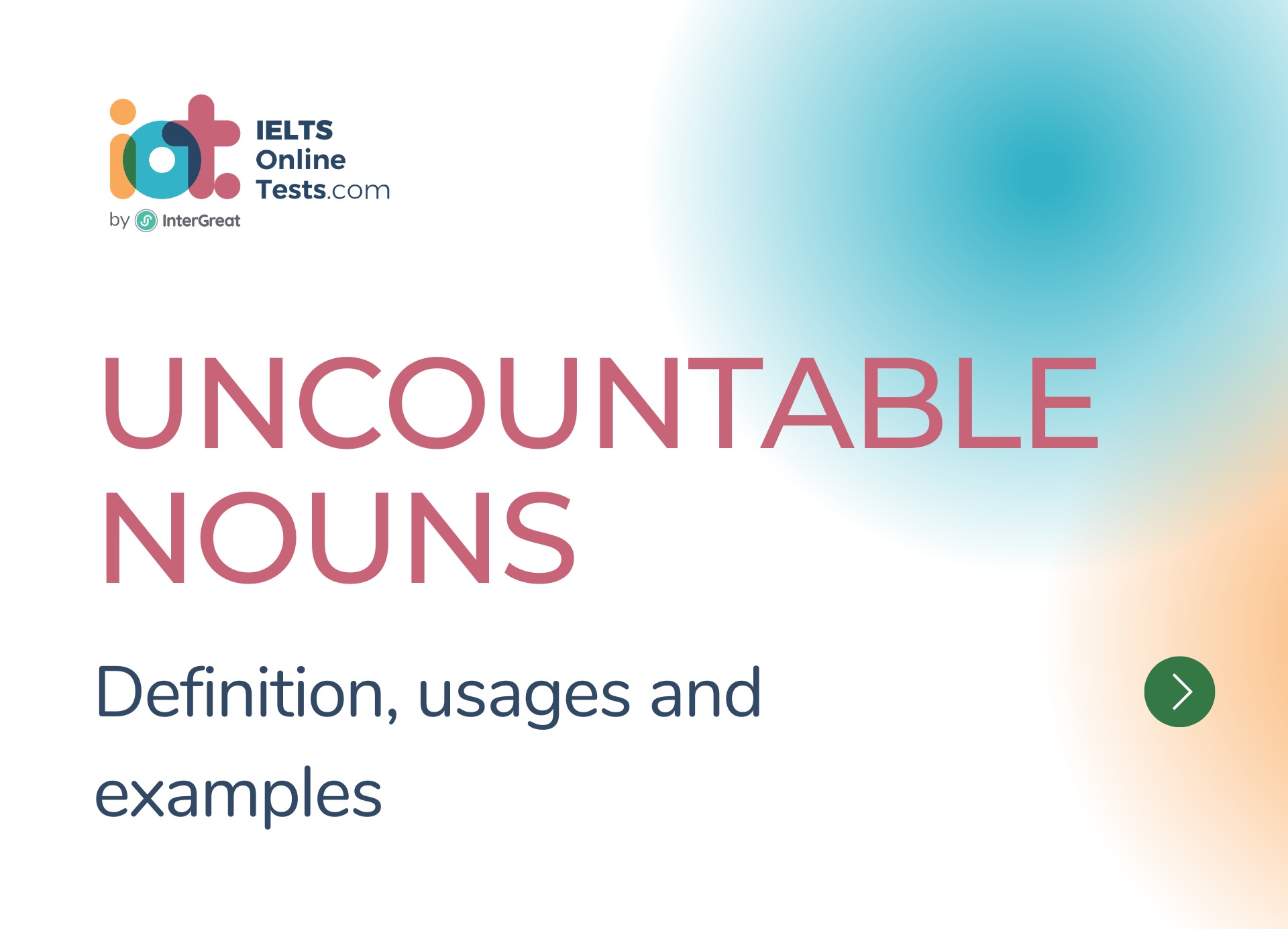
Uncountable nouns
Uncountable nouns, also known as non-count or mass nouns, are nouns that do not have a plural form and cannot be counted as separate individual units. They represent substances, concepts, or qualities that are viewed as a whole or are considered uncountable.
Here are some key points to understand about uncountable nouns:
No Plural Form: Uncountable nouns do not have a plural form. They are always used in the singular form.
- Examples:
- water (not "waters")
- information (not "informations")
- happiness (not "happinesses")
- Examples:
Indefinite Quantity: Uncountable nouns are considered as a mass or a whole, rather than as individual units.
- Examples:
- sugar, sand, air, milk, advice.
- Examples:
No Numerical Quantifiers: Uncountable nouns cannot be used with numbers or specific numerical quantifiers. Instead, they can be modified by words that indicate quantity, such as "some," "a lot of," "a little," or "much."
- Examples:
- some water,
- a lot of information,
- a little sugar,
- much happiness.
- Examples:
Abstract Concepts: Uncountable nouns often represent abstract concepts, qualities, or states that are not physical and cannot be perceived through the senses.
- Examples:
- love,
- honesty,
- courage,
- intelligence,
- knowledge.
- Examples:
Materials and Substances: Uncountable nouns can represent materials or substances that are not viewed as individual objects or units.
- Examples:
- wood, glass, plastic, metal, rice.
- Examples:
Food and Beverages: Many food and beverage items are uncountable nouns.
- Examples:
- bread, cheese, coffee, tea, sugar.
- Examples:
Linguistic Considerations: Some nouns can be countable or uncountable, depending on the context or usage.
- Examples:
- "I have two beers" (countable: referring to individual bottles),
- "I like to drink beer" (uncountable: referring to the beverage as a whole).
- Examples:
- More examples:
Substances: water, sand, air, sugar, salt, oil
Materials: wood, glass, plastic, metal, leather, cement
Food and Beverages: bread, cheese, butter, coffee, tea, rice
Abstract Concepts: love, happiness, knowledge, courage, patience, beauty
Qualities: honesty, integrity, loyalty, kindness, intelligence, bravery
Information and Data: information, data, news, advice, knowledge, research
Liquids: milk, juice, wine, soda, coffee, tea
Weather Conditions: rain, snow, fog, sunshine, thunder, lightning
Languages: English, Spanish, French, Mandarin, Russian, Arabic
Music and Sound: music, noise, silence, laughter, applause, thunder
Time and Measurement: time, distance, speed, weight, temperature, money
Emotions and Feelings: love, anger, fear, happiness, excitement, sadness
Abstract States: peace, freedom, chaos, solitude, serenity, confusion
Art and Creativity: art, creativity, imagination, beauty, inspiration, talent
Furniture: furniture, equipment, luggage, advice, knowledge, research
Uncountable nouns are important in English grammar as they allow us to discuss substances, concepts, and qualities that are not viewed as separate entities. They help us express ideas, describe abstract concepts, and discuss uncountable quantities. By understanding uncountable nouns, you can use them appropriately in your writing and speaking to convey meaning accurately.




